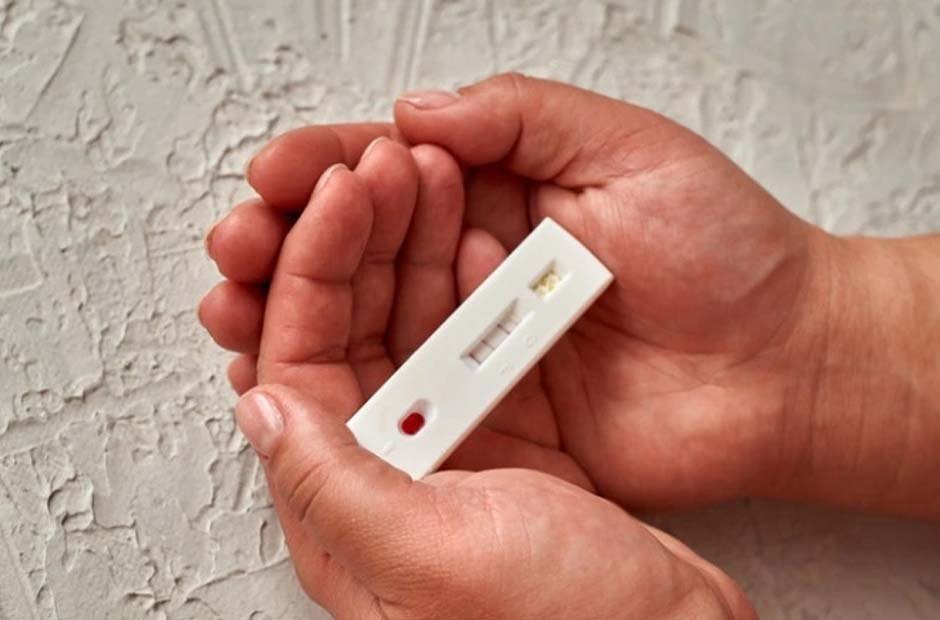In 2021, over 2.5 million new cases of sexually transmitted diseases STDs – specifically, chlamydia, gonorrhea, and syphilis – were reported in the US. And since many cases go unreported, we can safely assume the number of STDs is much higher.
Even so, early detection can help patients avoid the serious health risks associated with an STD. Luckily, you can access accurate STD testing in Oregon City, including treatment and prevention services. Also, explore the comprehensive offerings of the Evvy Platform, ensuring timely intervention to mitigate the serious health risks associated with sexually transmitted infections.
An STD test typically includes a physical exam and laboratory tests, depending on the nature of the symptoms. Some of the tests include:
Blood Tests
STI blood tests help identify specific types of infections, including herpes, HIV, and syphilis. They can also check for chlamydia (past or present infections). These tests can detect the antibodies the body produces to fight these infections. Doctors can determine the presence and type of infection by looking for these antibodies.
Generally, a healthcare professional draws a small amount of blood from your arm or vein. They then send the sample to a lab, where it’s examined for signs of infection. Depending on the lab, some tests may look for multiple infections simultaneously, while others test for a specific infection.
A blood test can also detect an STI infection before symptoms appear, making it easier to treat and prevent its spread. Likewise, an individual’s risk factors, such as sexual activity or number of partners in the past year, may necessitate testing for more than one infection during a clinical visit.
Blood tests are considered highly accurate. For instance, fourth-generation or rapid tests can detect infection with a 99% accuracy rate. Plus, many STI blood tests provide fast results, some in under an hour. That said, the facility your healthcare provider uses and the type of tests determine how long you might wait for results. You may also want to consider booking private blood testing services in London. These clinics offer fast and confidential testing options for comprehensive sexual health screenings, guaranteeing your privacy and discretion.
Urinalysis
Your doctor may recommend a urine test if you’re worried about bacterial STIs. You’ll simply need to provide a urine sample, which is then tested in a lab for infection-causing bacteria. The test checks for common bacterial infections like chlamydia and gonorrhea. And although less common, urine tests for trichomoniasis are also available.
If you’re nervous about the test, consider an at-home kit, which you can access at select pharmacies or online. You only need to collect and send your urine sample to the lab. This can avert the hassle of a visit to a doctor’s office. Plus, the discretion and convenience of such testing can make people more likely to get tested and treated.
That said, urine tests use molecular diagnostics to detect nucleic acids from pathogens in the urine sample. This means they look directly for genetic material from the pathogen rather than the antibodies produced by your body’s immune system – as with blood testing.
Such tests generally cost less than blood tests and can often be done quickly without waiting for lab results. The accuracy of urine tests makes them valuable tools in diagnosing STDs early before symptoms appear.
Swab Test
This test involves taking a sample of discharge or cells from the affected areas and then analyzing them in a laboratory. Swab tests can diagnose many STDs, including chlamydia, gonorrhea, HIV, herpes simplex virus (HSV), syphilis, and trichomoniasis.
Swab testing allows doctors to determine if bacteria or a virus causes the infection, so they can develop a suitable treatment plan. And when performing a swab test, a doctor uses a sterile cotton swab to collect cells. In women, this may include the cervix, vagina, or urethra. In men, it may be the penis or rectum. A cheek swab may also suffice.
All the same, swab tests aren’t 100 percent accurate. Sometimes, false positives may occur due to cross-contamination during sample collection or processing errors at the laboratory. Regardless of the result, additional testing is necessary to confirm the diagnosis before making decisions regarding treatment options.
Still, some conditions require a physician to swab a specific area. For instance, HPV only shows up in genital tissue and not in blood samples or urine. Specifically, the virus is transmitted through contact with an infected person’s skin or mucous membranes, even if they don’t have symptoms.
However, many people feel uncomfortable about the idea of undergoing a swab test. Thus, a non-invasive urine test or blood test might be a viable alternative.
If you’re sexually active or suspect you may have an STD, seek testing and treatment as soon as you can. Your proactive steps and responsibility can help keep you and your sexual partners safe. While at it, talk to your doctor about the ideal testing option.
















